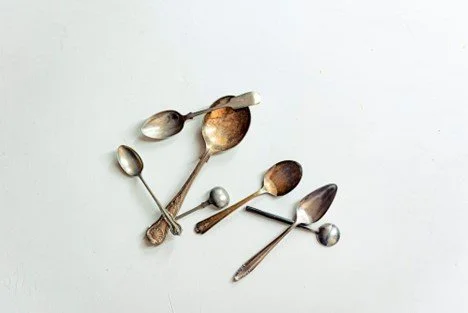Cognitive Load – The Spoon Analogy
By Kaitlyn H., BSc Psychology
Photo by Joanna Kosinska on unsplash.com
Feeling burnt out from your day? You might not have enough spoons to spend on your daily tasks.
You may be reading the title of this blog and wonder how spoons have anything to do with cognition, and you may be right. Spoons cannot literally be connected to cognition, but we can use it as a metaphor to better understand a complex concept about our daily brain functioning.
Cognition refers to our mental processes of collecting knowledge and understanding our experiences and senses (Cambridge Cognition, 2015). Cognitive load, more specifically, is “the amount of information our working memory can process at any given time” (Medical College of Wisconsin, 2022). When we think of the three main parts of executive function, working memory is one of those important skills, and it is a valuable tool in providing us the ability to complete tasks and set goals for ourselves throughout our day or week.
Have you ever questioned why some days you don’t feel you have enough energy to complete those daily tasks and responsibilities? Depending on how many things we need to get done by the end of the day or even week, and how well we are taking care of ourselves during busy times, it is common to feel burnt out or tired, and it may feel like you have run out of spoons to help you complete that checklist you set for yourself.
We can think of spoons as a type of currency that we spend throughout our day on different tasks and responsibilities. Some of these tasks may cost more than others, and some activities we can do throughout our day can help replenish our spoon supply. Sometimes, we might have less spoons to spend one day, and have more than enough on another day. This might depend on the amount of sleep you have had the night before, the types of food you eat to nourish your body, and the time you spend on self-care and other activities that help you relax.
Photo by Dogukan Sahin on unsplash.com
If we think back to what cognitive load means, we can understand it by looking at our daily checklist. This checklist can be thought of our cognitive load that we set for ourselves for the day or week. This cognitive load costs a certain number of spoons, and sometimes we don’t have enough spoons to spend on those tasks. This is where you might be low on energy and may feel burnt out as a result.
To put it in perspective, on an average day if I had a good night’s sleep, ate some healthy foods throughout the day, and spent about twenty minutes going on a walk outside, I could have 10 spoons that day to spend on my daily tasks. Work might cost 5 of those spoons, leaving 5 left for other things. Maybe I need to run a quick errand after work costing me 2 more spoon, and then cook dinner later which would cost another 1 spoon. That would leave me with 2 spoons for the rest of the day. I then have the option to spend them on other tasks, or I could replenish them by doing something to help me relax and wind down from the day. Any extra spoons I have that day could be carried over to the next day, giving me additional spoons to start my day with. That doesn’t sound too bad, does it?
Photo by Aaron Burden on unsplash.com
But, maybe on another day, I might have had a bad sleep, didn’t eat as much healthy foods as I needed, and the weather was too cold for a walk outside. On this day I might only have 6 spoons to spend because of this, and no extras from yesterday as I had spent them all. Work would cost 5 spoons only leaving me 1 for the rest of the day. While looking at the checklist I had for myself that evening, I might feel overwhelmed and unable to finish those tasks for the rest of the day. This is where a replenishing activity would be crucial as I am short on spoons that day, and I want to make sure I have enough to get through my day.
Now, you may be wondering what these replenishing activities may be. These are things that have worked for me when I have felt burnt out or tired from my day:
· Going for a short walk indoors or outdoors
· Going to bed early
· Reading a book or graphic novel
· Following a short yoga video on YouTube
· Taking a relaxing bath with a candle and the lights off
· Doing an extensive skin care routine
· Talking with a friend or family member about my stressful day
· Writing in a journal about how my day went
· Playing a board/card game with my friends or family
There are many more ways to replenish your spoon supply, and this list may look different for everyone. Try making your own list to fall back to when you feel low on spoons and burnt out from the day!
References:
Cambridge Cognition, 2015. What is cognition? Retrieved from https://cambridgecognition.com/what-is-cognition/#:~:text=Cognition%20is%20defined%20as%20'the,used%20to%20guide%20your%20behavior.
Medical College of Wisconsin, 2022. Cognitive Load Theory. Retrieved from


